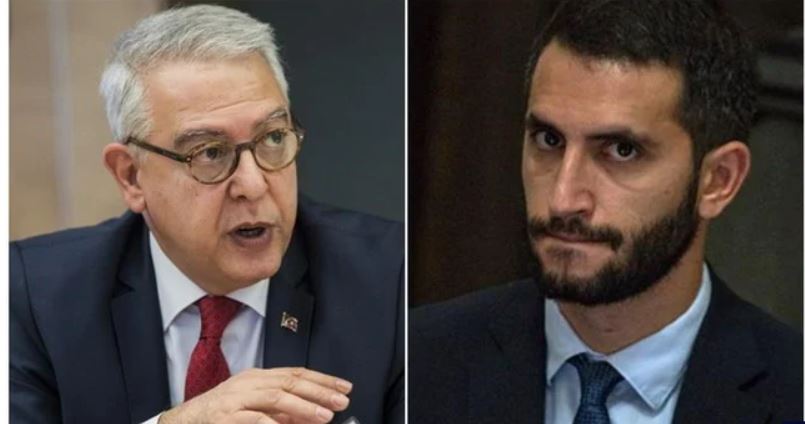Ruben Rubinyan and Serdar Kılıç, the Armenian and Turkish special representatives, respectively, met on Tuesday on their closed border to discuss resuming rail transport between the two countries, Agence France-Presse reported, citing Turkey’s foreign ministry.
Diplomatic relations between the two neighbors — who share a painful history — were severed over the Nagorno-Karabakh conflict in 1993. But four rounds of talks on normalizing ties have been held since envoys were appointed in December 2021.
Officials at Tuesday’s fifth meeting shook hands on a bridge in Alican-Margara on the border and vowed to “assess the technical means needed to reopen the Akyaka-Akhurik railway border crossing, depending on regional developments,” the Turkish ministry said in a statement.
Beşinci tur görüşmemizi de Türkiye ve Ermenistan sınır bölgesinde sabah Ermenistan öğleden sonra Türkiye tarafında olacak şekilde gerçekleştirdik. Normalleşme sürecinin tüm veçhelerini ve daha da ilerletilmesi imkanlarını yapıcı bir anlayışla ele aldık. https://t.co/WMPGEPSo3R pic.twitter.com/HiWiJTMcQk
— Serdar KILIÇ (@serdarkilic9) July 30, 2024
The envoys agreed to “facilitate the visa process for diplomatic passport holders,” the statement said.
Armenia used the Alican-Margara bridge to send a humanitarian aid convoy to the victims of powerful earthquakes that struck Turkey in February 2023, claiming more than 53,000 lives.
Armenian Prime Minister Nikol Pashinyan on Friday visited the border crossing, which Yerevan recently renovated in hopes of a breakthrough.
Yerevan has often blamed Ankara for what it deems as insufficient efforts to reopen the frontier, whereas Turkey has said it was waiting for a peace treaty between its ally Azerbaijan and Armenia over Nagorno-Karabakh.
Caucasus rivals Azerbaijan and Armenia fought two wars — in the 1990s and in 2023 — over control of Karabakh, which had been predominantly populated by ethnic Armenians.
Baku recaptured the mountainous enclave in a lightning offensive last September that led to the exodus of its entire Armenian population — more than 100,000 people.
Turkish President Recep Tayyip Erdoğan was quick to celebrate Azerbaijan’s victory, which he claimed brought “new normalization prospects” for the region.
Turkish-Armenian relations are haunted by the massacres of Armenians committed during the first World War by the Ottoman Empire before it became modern Turkey — regarded by Yerevan and many nations as a genocide, a term that Ankara rejects.
The Turkish-Armenian border could be reopened to third-country nationals first before opening to all, according to Turkish media.

